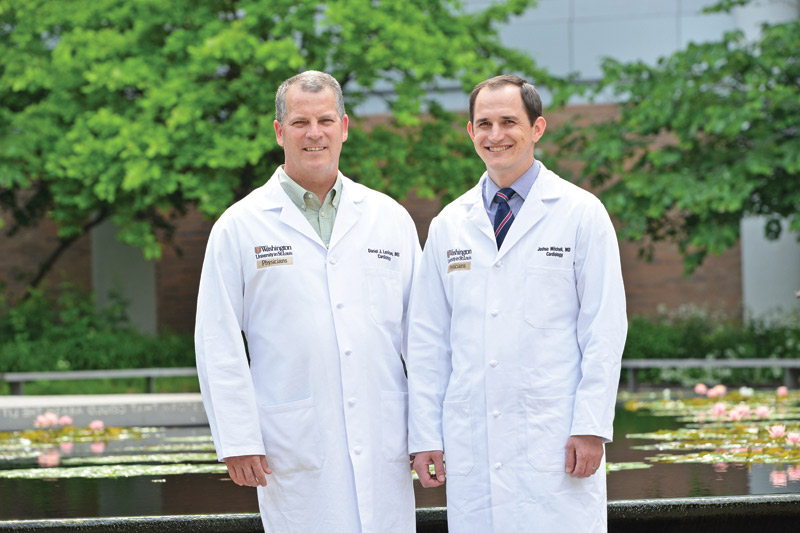The law of unintended consequences can apply even in medicine, with unexpected symptoms and conditions sometimes appearing as the result of medical treatment. For example, patients undergoing cancer therapy can develop heart problems, an issue that has spurred the growing field of cardio-oncology. Washington University Physicians is committed to minimizing the risk of heart-related complications so cancer patients can continue their treatment uninterrupted and get the best possible results.
Cardiologist Dr. Daniel Lenihan recently joined Washington University School of Medicine as director of its Cardio-Oncology Center of Excellence, leading a team of experienced practitioners. He says cancer treatment-related cardiovascular problems like arrhythmias, heart valve disease, coronary artery disease and heart failure may take years to surface, sometimes showing up in adults who were treated for childhood cancers decades ago.
A combination of lab tests and imaging is used to look for potential heart and blood vessel problems, and patients may have symptoms such as shortness of breath or fluid in the abdomen or legs, says cardiologist Dr. Joshua Mitchell. He says people with factors like high cholesterol, high blood pressure and tobacco use may be at higher risk for cancer treatment toxicity. “It doesn’t mean, however, that you’re not at risk for toxicity if you don’t have those factors,” he notes. “We are involved in active research to find cardiovascular problems early and treat them so they don’t delay patients’ cancer treatments.”
Because of medical advancements in the last 20 years, cancer therapies are much more effective, which means patients are living longer, Lenihan says. While a good thing, it also means cardiovascular effects have more time to appear. So addressing any secondary problems is key, he says. Mitchell adds that the Washington University team counsels patients to further lower their heart disease risk by eating a nutritious diet, staying physically active and not smoking. It’s important for a cancer patient’s oncologist and cardiologist to communicate fully to prevent problems, a main goal of the Center of Excellence, according to acute care nurse practitioner Holly Wiesehan. The idea is for new patients to be seen in less than a week so their cancer treatment isn’t interrupted, she says.
“You don’t have to be a Washington University cancer patient to receive help from our cardiooncology program,” Wiesehan notes. “We see patients at Barnes-Jewish Hospital and our two Heart and Vascular Centers in South County and West County, and we can send recommendations to their oncologists. The goal is to make sure patients are in the best possible cardiovascular shape so they can continue cancer treatment successfully.”
Washington University Cario-Oncology is dedicated to helping cancer patients receive successful treatment. Pictured on the cover: Cardiologists Dr. Joshua Mitchell and Dr. Daniel Lenihan with acute care nurse practitioner Holly Wiesehan. For more information, call 314.362.1291 or visit cardiology.wustl.edu.
Cover courtesy of Washington University Physicians
Cover photo by Bill Barrett
Pictured above: Washington University cardiologists Dr. Daniel Lenihan and Dr. Joshua Mitchell.
